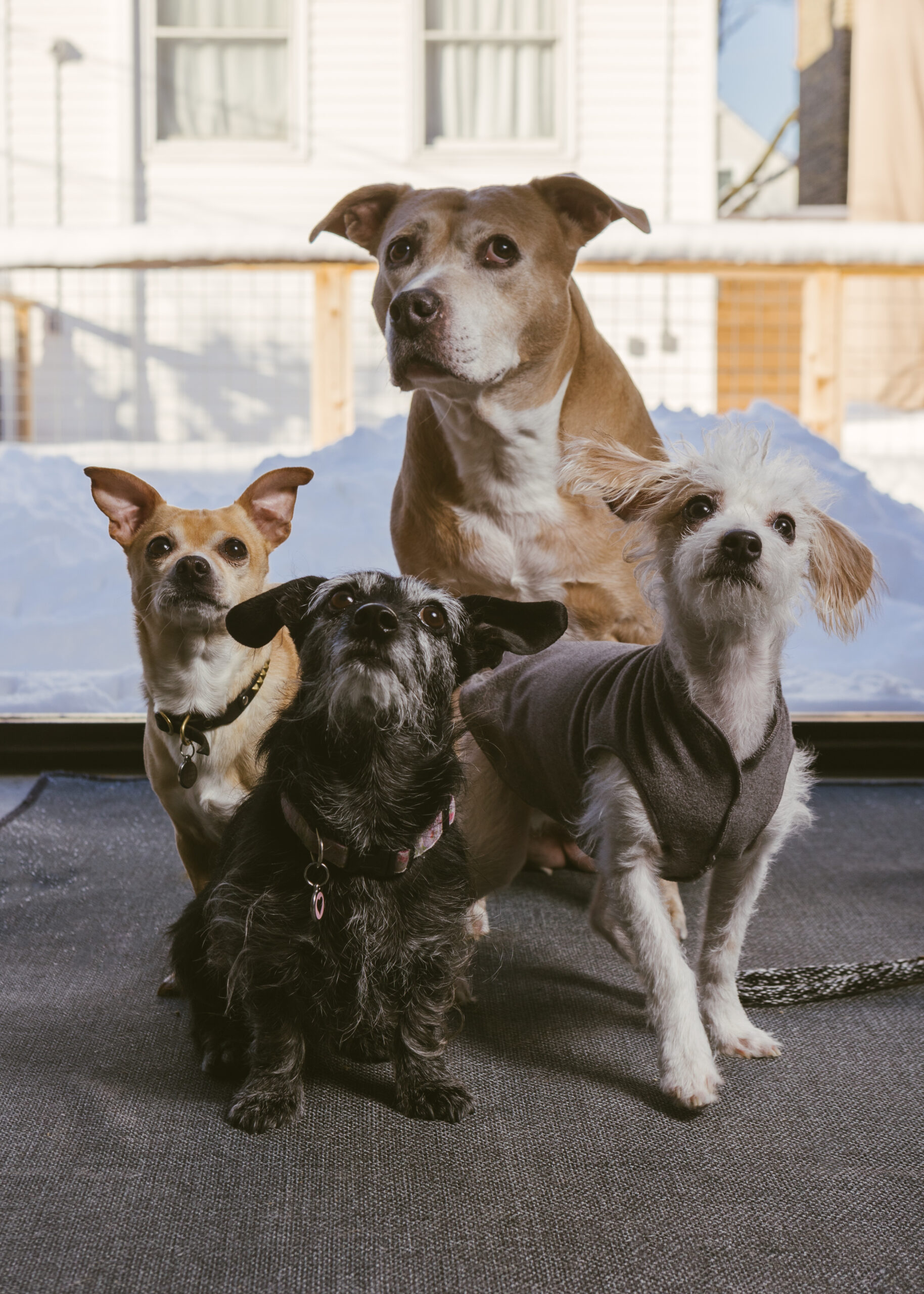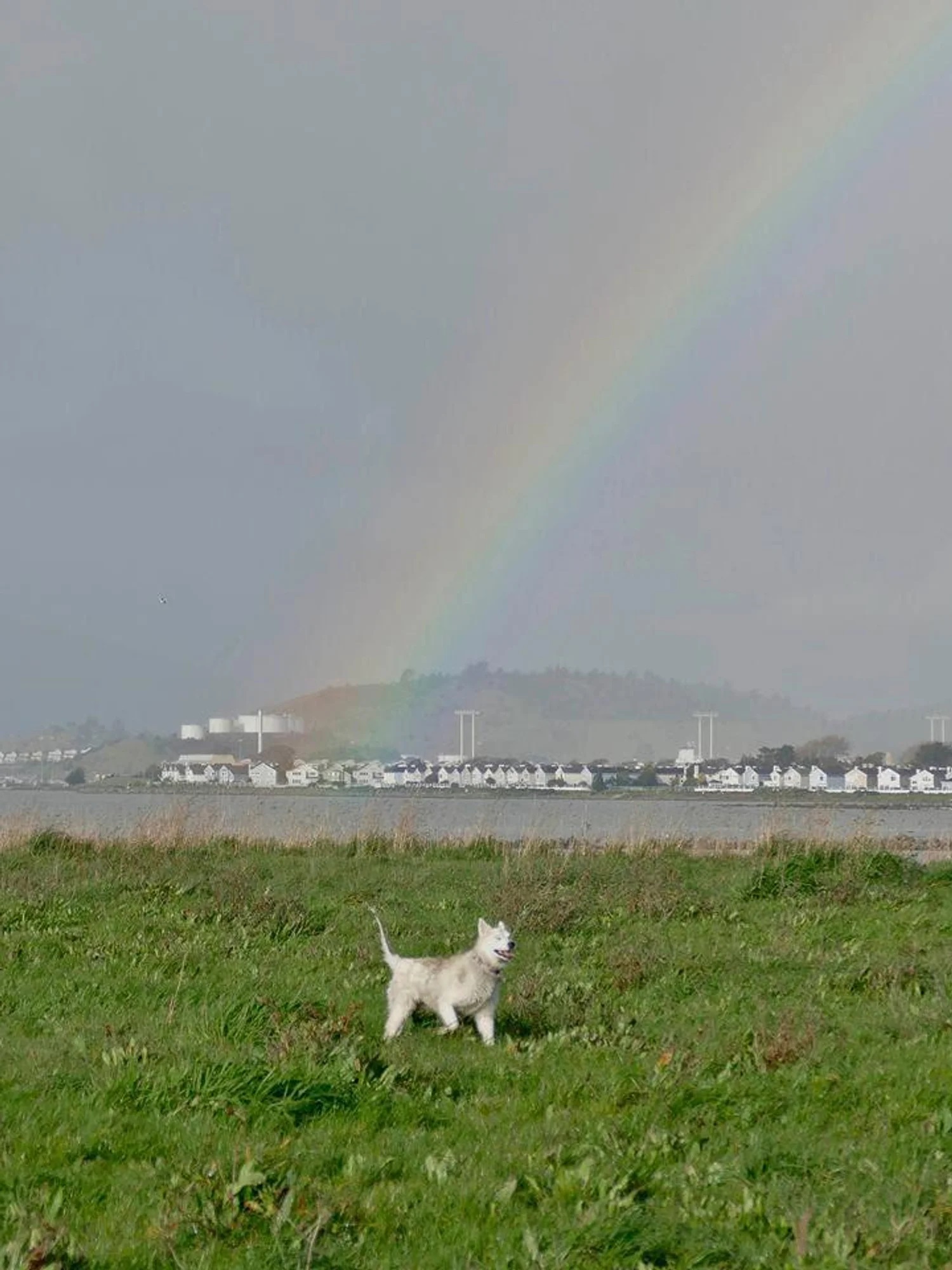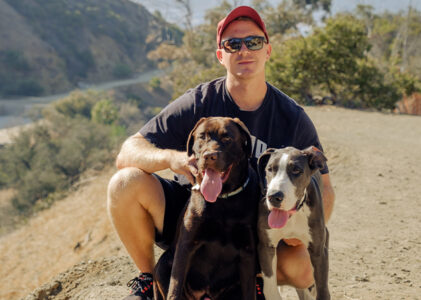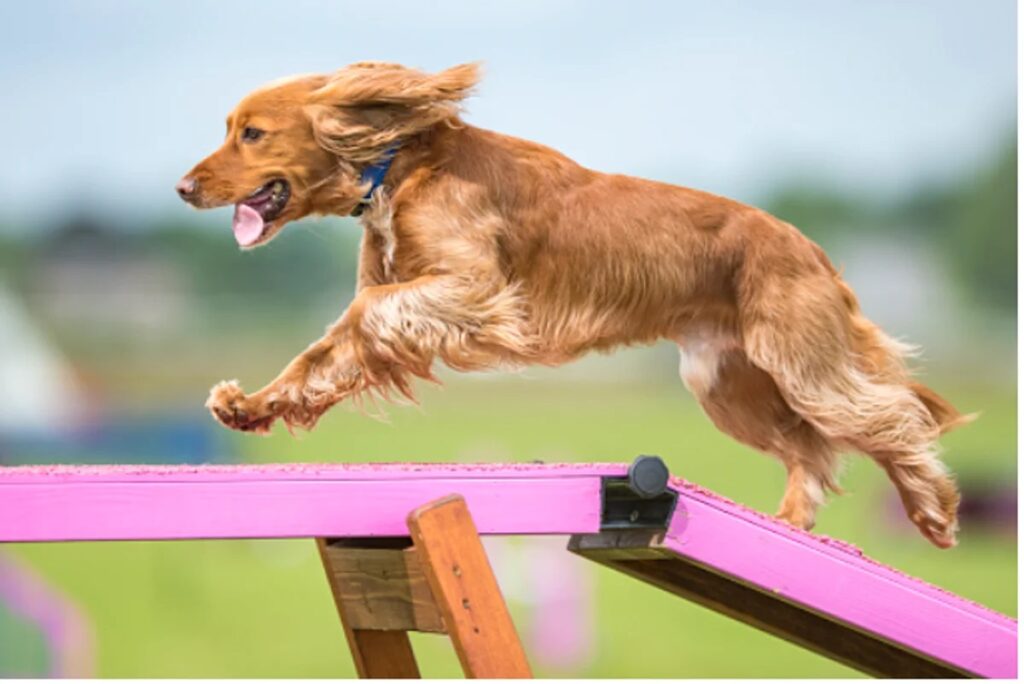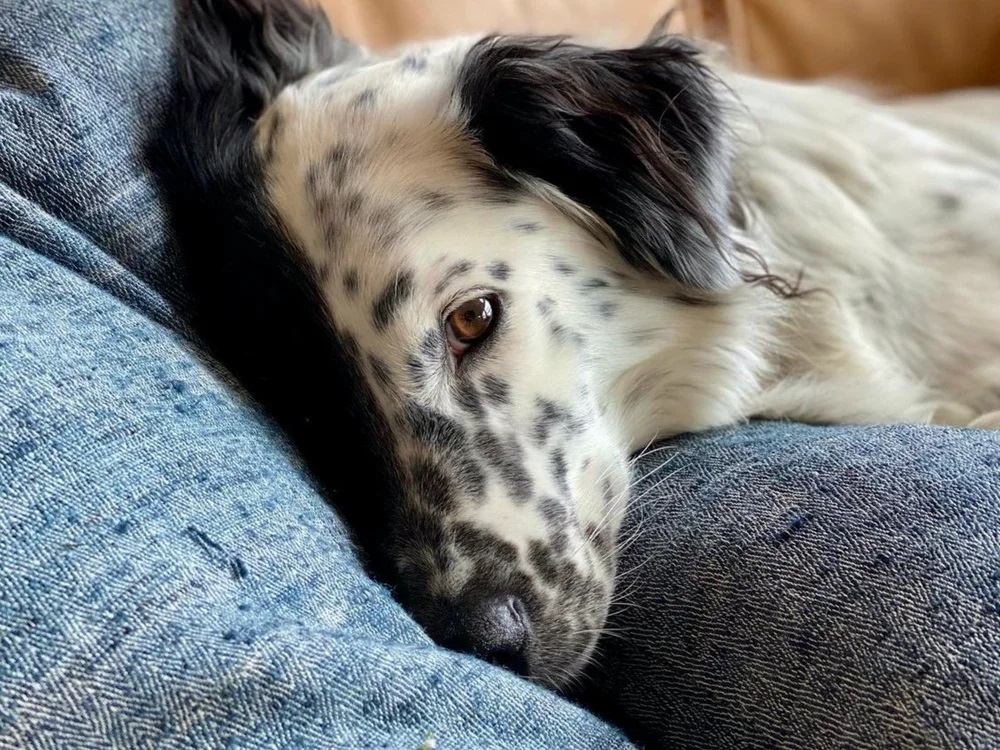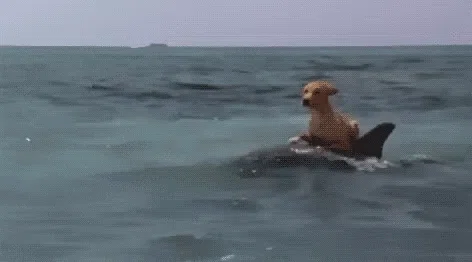It’s daybreak in Northern California and Gail de Rita is on the road in her trusty Toyota pickup. She’s heading from her home in the Bay Area to a municipal animal shelter three hours away, where yet another Husky is in distress. A young female, run over on the freeway, has been taken to the local shelter in Stockton. She’s in bad shape. De Rita has already reached out to her support system—an excellent veterinarian who will see the dog as soon as she returns and a potential foster home to nurture the dog back to health.
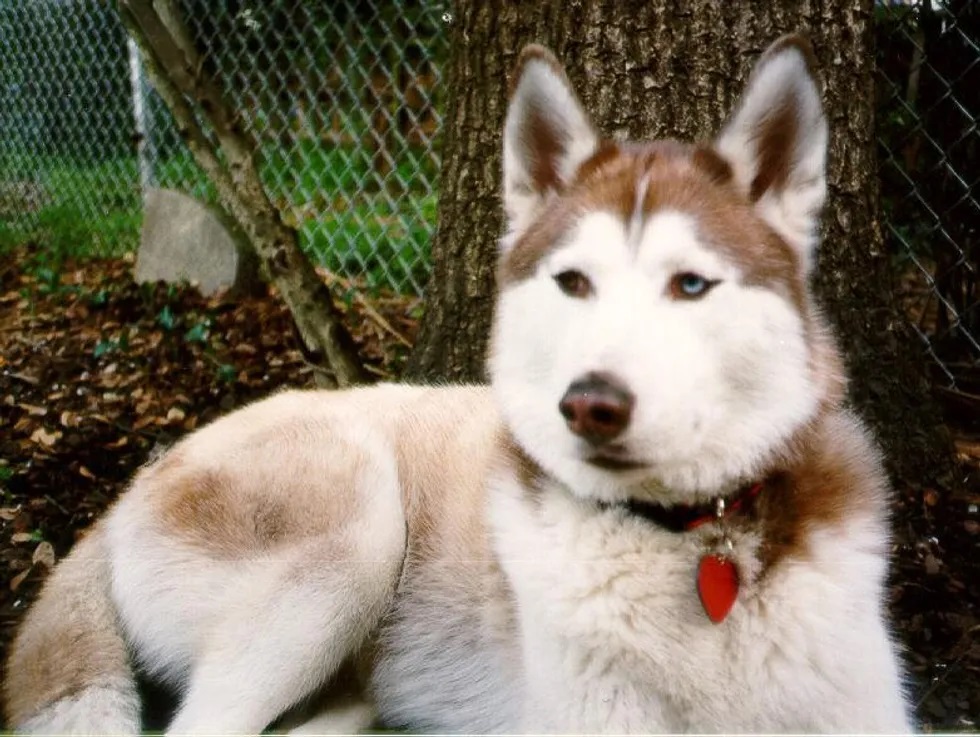
Juno, de Rita’s first Husky, who inspired her career in rescue.
Photo by Gail de Rita
At the shelter, after the paperwork is taken care of, the staff people help de Rita carry the dog out to her truck. “Sweet girl, you’ll be safe now,” de Rita says, snuggling the injured pup into blankets and offering her water and a treat. Dogs, no matter what their state of health or trauma, seem naturally to trust her.
This dog, named Gypsy, is de Rita’s first rescue of the day. Before nightfall, de Rita will have scheduled Gypsy’s surgery, made arrangements to rescue several more huskies in trouble, met with a couple of potential adoptive families, called a foster family to get an update on a recently found litter, arranged for several dogs to visit a groomer, and posted photos of a newly adopted Husky with a smiling new family. She’ll also have fed and cared for her own dogs.
De Rita is the Rescue/Adoption Coordinator and the driving force behind NorSled (short for Northern California Sled Dog Rescue) a 501 ( C ) (3) nonprofit that helps and re-homes northern breeds, mostly Siberian Huskies and others who loosely fit the sled dog category. Seven days a week, de Rita and a small army of volunteers pick up dogs from miles away, some animals saved in just the nick of time, many with injuries or illnesses that the shelters can’t afford to treat. De Rita and NorSled have rescued thousands and thousands of Huskies, including strays and those relinquished by owners, dogs who have been abused or otherwise injured, and those in danger of being put down. Shelters all over northern California—and some beyond—keep de Rita’s number handy.
***
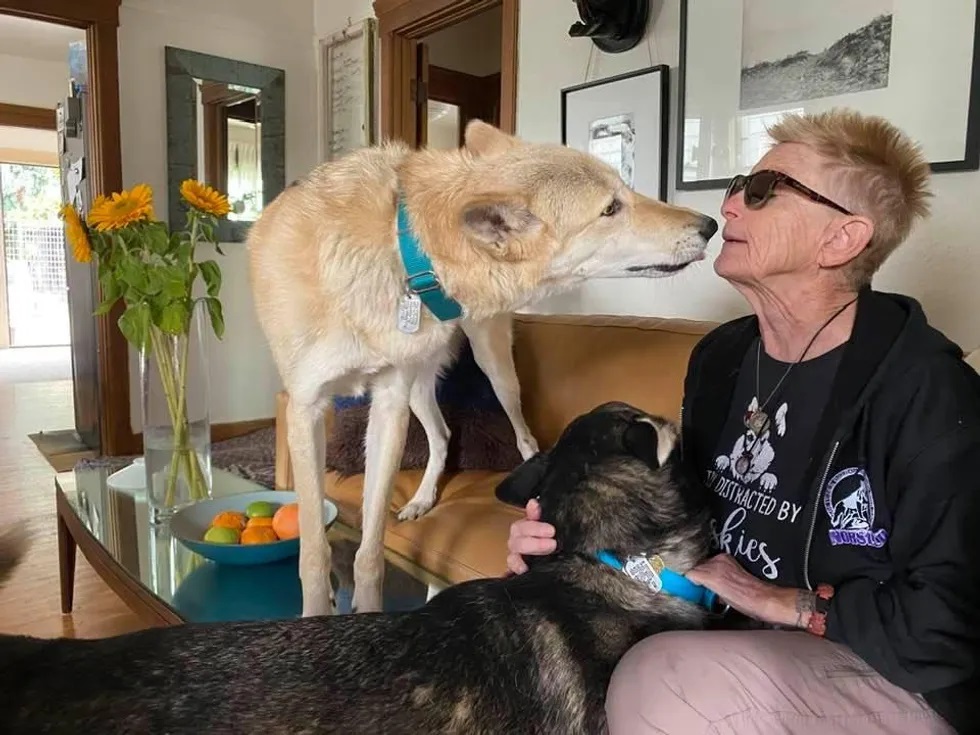
Apache saying hello to de Rita.
Photo by Michele Ortland
De Rita, who once worked for the Natural Resources Defense Council, is retired now and has been helping Huskies for twenty-five years. A vivacious energetic woman in her late seventies, with spiky blonde hair and clothing that usually sports a bit of dog fur, de Rita is a Husky’s best friend. Her extensive community consists of both humans and dogs, but, in her heart, the dogs take the edge.
Her love affair with Huskies began with a dog named Juno. “She was my first Husky and it was a slippery slope from there,” she says. “It was sort of crazy because I knew nothing about Huskies, and Juno was quite something.” De Rita’s pickup bears a distinctive JUNOTRK license plate, in memory of that first Husky.
The minute de Rita began caring about Huskies, she had her work cut out for her. Huskies are a challenging breed and naïve owners who expect a lap dog often give up when the dog slips out the door looking for adventure. Huskies tend to be independent and born to run, requiring a lot of exercise. Lacking that, they can get into trouble. They also shed clouds of fur and can have a high prey drive. The plus side, making them hard to resist, is that they are beautiful to look at, affectionate, quirky, and endlessly entertaining.
De Rita’s own rescue efforts aside, she’s a tireless cheerleader, cajoling kind-hearted vets, cultivating foster families, urging others to step up. “We are beyond full, overwhelmed, tipping over the brink, and need fosters and support,” she’ll announce in one of her almost daily social media posts. “These dogs are terrific, friendly and will be beautiful tomorrow. Give us a helping paw—sign up to foster. You will have fun and definitely won’t regret it.” De Rita can almost always get some quick help when she sends out a “flare” about a Husky in need. She works with numerous kind-hearted veterinarians, sending out pleas for donations as the vet bills pile up.
Anyone who gives a Husky a home becomes part of de Rita’s extended family. “I keep in touch with all these people,” she says. “It’s really important for nonprofits, who need all the help they can get.” (Full disclosure: My family has had three NorSled dogs—Allie, a puppy from a rescued litter; Corky, found on the streets of Bakersfield with her leg broken in three places; and Chase, a charming escapee from Southern California who came to us as a foster, but settled in so happily that we couldn’t give him up.)
***
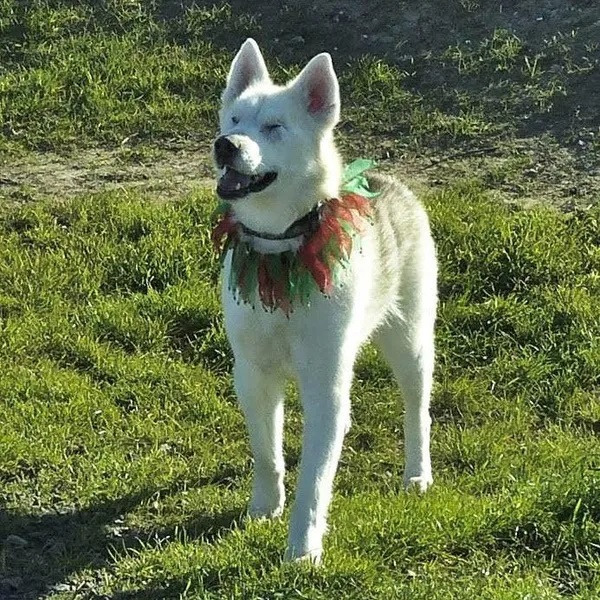
Skky, de Rita’s blind Husky, who was the beginning of her great love for blind dogs.
Photo by Gail de Rita
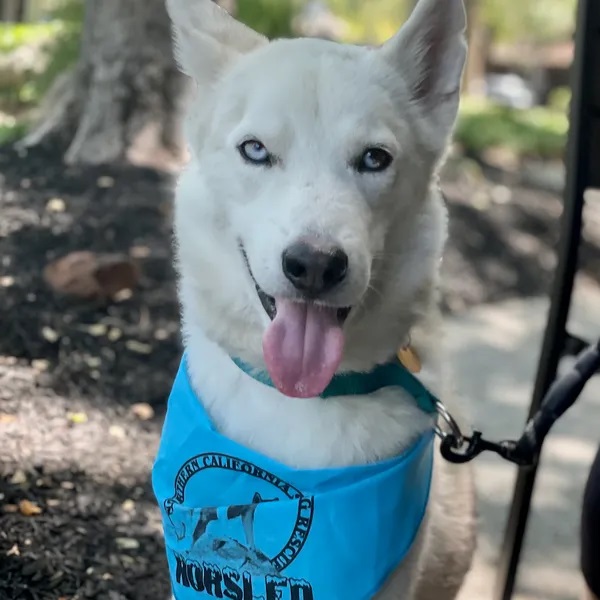
An “after” photograph of Beau, found with pellet wounds and other damage, now available for adoption.
Photo by Gail de Rita
De Rita herself usually has at least six Huskies living with her in a surprisingly neat home, though there is the occasional half-eaten book or exploded pillow on the floor. At the moment she has a sweet, very old wolf mix; a crippled dog whose back legs don’t work; and a dog who lacks balance because of a head injury. She also has three blind dogs and is always in danger of adding another husky to her personal pack, especially one whose condition likely rules out adoption. “Juno was deaf and the beginning of my work with disabled dogs,” she says.
De Rita’s great love for blind dogs began with a white Husky named Skky. “I saw her photo on the East Valley LA Shelter page almost ten years ago,” de Rita recalls. “Her eyesight was gone, likely why she was dumped, and since she had been there three months she was marked URGENT. I had never had a blind dog, so figured it would be an education and maybe even fun. I had a foster home lined up, but that fell through. She came to me, adorable, with such sad, hurt eyes. Skky was the beginning of my inspirational work with blind Huskies. She took the shotgun seat in the truck and went on every road trip. Through thick and thin, she was my constant companion. She lost her hearing but that didn’t slow her down either. I still miss her every day.”
When de Rita isn’t on a rescue mission, she is busy finding new homes for the dogs the rescues taken in. Some dogs arrive in great shape, but the owners have gone missing. At last count she had forty-five in need of homes or fostering. She carefully checks out potential adopters, making personal visits to be sure that yards are safe and secure, fences high enough, and would-be owners aren’t careless or naïve. By way of educating people, she delights in posting photos of Huskies digging under fences and climbing out of tall chain-link enclosures.
Recently, in the midst of the usual flurry of daily rescues, de Rita heard that a Husky she’d placed with a Northern California family a few years back had just been found dumped in a shelter in Austin, Texas. “I got a text from the shelter that said, ‘We have one of your dogs here.'” Despite the NorSled agreement that requires adopters to contact the organization and return the dog if things don’t work out, this family had moved away and relinquished the dog, a ninety-five-pound female named Storm. De Rita sprang into action, gathering a team—someone to pull the dog from the shelter and care for her until transit could be arranged, a driver to take her from Texas to California. Before the week was out, Storm was safely back in NorSled’s hands.
De Rita also had good news to report about Gypsy, though it had been touch and go. “Gypsy came in with awful injuries, having had a mangled front leg surgically removed and poor surgical repair of her back legs as well,” she explained. “There was some doubt that she’d pull through. But now her front leg has healed, and she can use her back legs. She is beautiful and a miracle.” Gypsy was subsequently adopted by a woman who is a cancer survivor, de Rita reported, and they were recuperating together. Gypsy went on to be the cover dog for NorSled’s annual calendar.
In early September, Gail heard of a female Husky who’d been in a shelter for three weeks, pregnant and at risk. Gail quickly got the dog to safety and into a foster home, where she had puppies two days later. Gail named the seven pups in honor of dogs who helped at the World Trade Center during 9/11: Salty and Roselle after two seeing-eye dogs who safely led their handlers out of the buildings; Apollo, Riley, and Sage after three rescue dogs who combed the site for survivors; and Abby and Lady George after two therapy dogs sent to comfort first responders and family members of victims.
Meanwhile, de Rita was working with a couple of abandoned female Huskies found in Delano, who also had recently given birth. “Where the puppies are, no one knows,” she said sadly. “Another day, another pack of fabulous, ‘discarded,’ often lactating Huskies.”
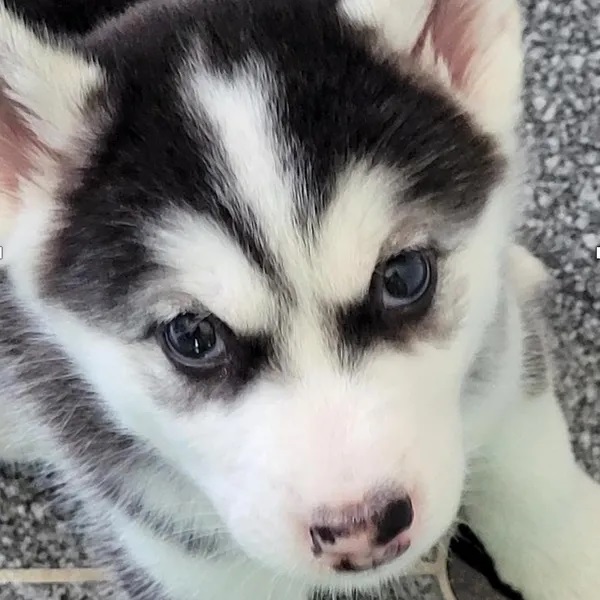
A Husky puppy, abandoned and awaiting rescue.
Photo by Gail de Rita
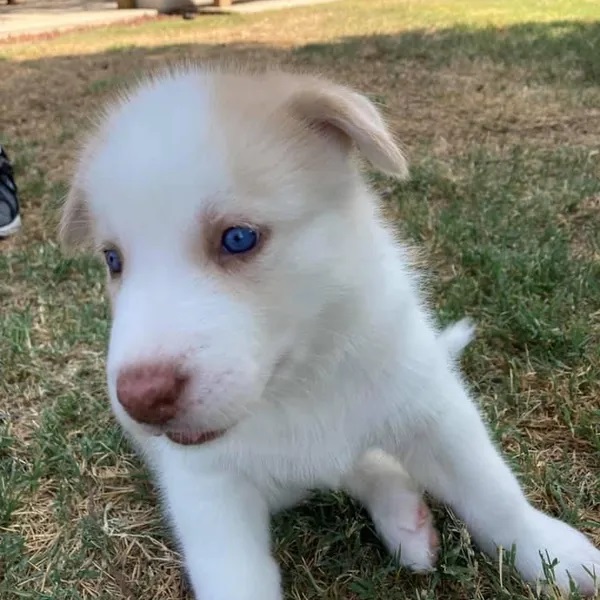
Lady George, one of eight puppies from an unexpected litter, soon to go into a new home.
Photo by Gail de Rita
De Rita has never lacked for needy dogs, but the last few years have seen the number of abandoned, relinquished, and injured Huskies skyrocket, thanks in part to the TV series Game of Thrones. The “Direwolves” on the show didn’t actually exist, having gone extinct eons ago. Northern Inuit dogs and other contemporary canines were used. But when viewers became enamored of the dogs portrayed and went looking for similar pets of their own, Siberian Huskies were the closest available substitute. Overenthusiastic people, naïve about the breed’s exercise requirements and talents for mischief and escape, contributed to an epidemic of abandoned dogs, many actually bearing names from the show, such as Ghost and Summer. The situation got so out of hand that Game of Thrones actor Peter Dinklage issued a plea for fans to educate themselves before rushing out to buy a Husky.
“Huskies are so beautiful and they are just so misunderstood,” de Rita says. “People don’t do their research. Then the dogs come to us with broken legs and broken spirits. That’s true of other breeds, too, but more so of Huskies.”
And it can go beyond carelessness. Another NorSled rescue, Beau, was found in Bakersfield, California, emaciated, covered in ticks, suffering from a severely broken leg and multiple wounds from a pellet gun. De Rita whisked him to safety and a veterinary surgeon.
“All paws crossed we can pull off our usual miracle and help this sweet pup get a good life,” she wrote to her followers. After surgery to repair his leg and treat the pellet wounds, medication for other issues, bathing, and some loving foster care, Beau was almost totally transformed, ready for a new home.
“Beau came in so terrified no one could touch him,” de Rita says, “and now he is a happy boy, and I’m soon going to have lunch with him—and another human.”
When de Rita feels undone by all the heartbreak she sees—including the lack of ethics exhibited by backyard breeders—she channels her energy right back into rescue. As we were talking, she got word that a couple of stray pups were waiting for her in Modesto, out in California’s hot Central Valley. Although it’s no place for Huskies, the area is full of dogs needing help.
“I keep hoping the flood of Huskies needing us will slow down, but apparently it is just getting started,” she said. “How can we not love them all, so beautiful, and sometimes so damaged, thanks mostly to human ignorance and lack of care?
“The hits just keep coming,” de Rita said, shaking her head, “and of course since it is never the dog’s fault, I can’t say no.”
With that, she hopped in the JUNOTRK and was off.
For further information, visit www.norsled.org. Also on Facebook and Twitter.
subscription
LOVE, DOG
